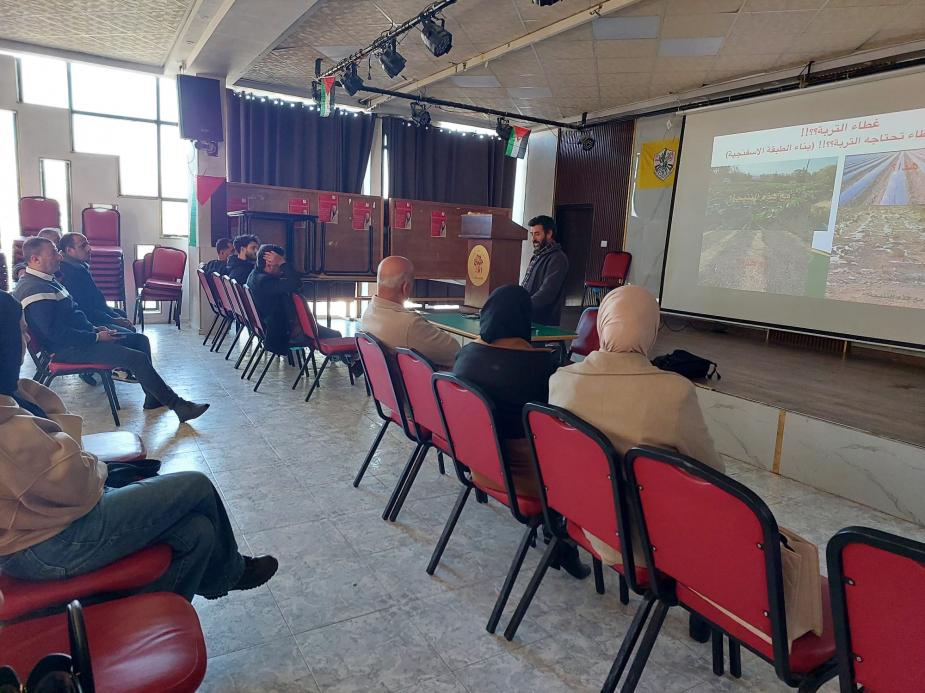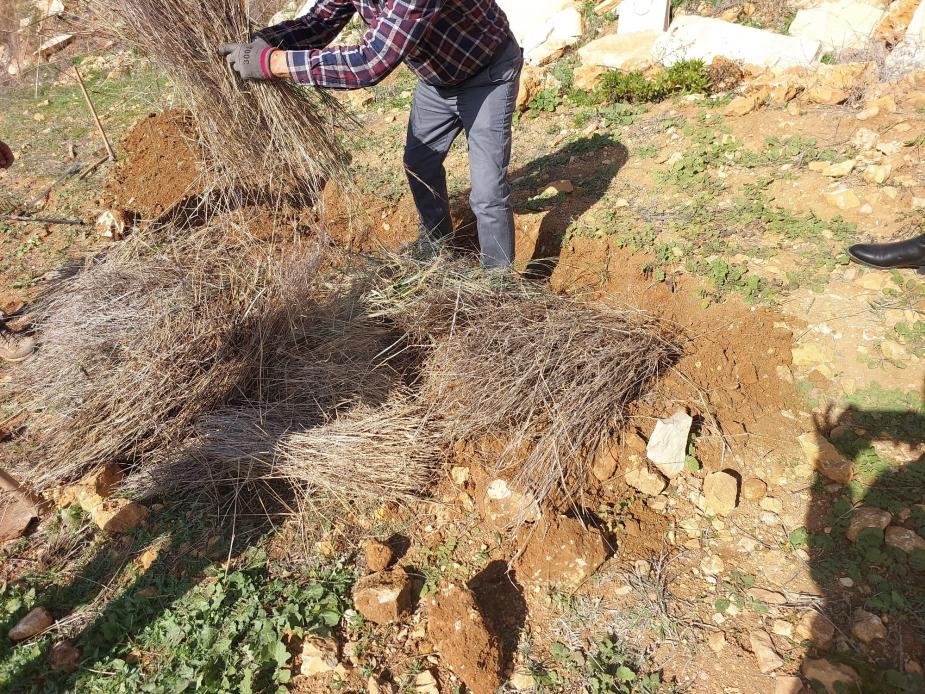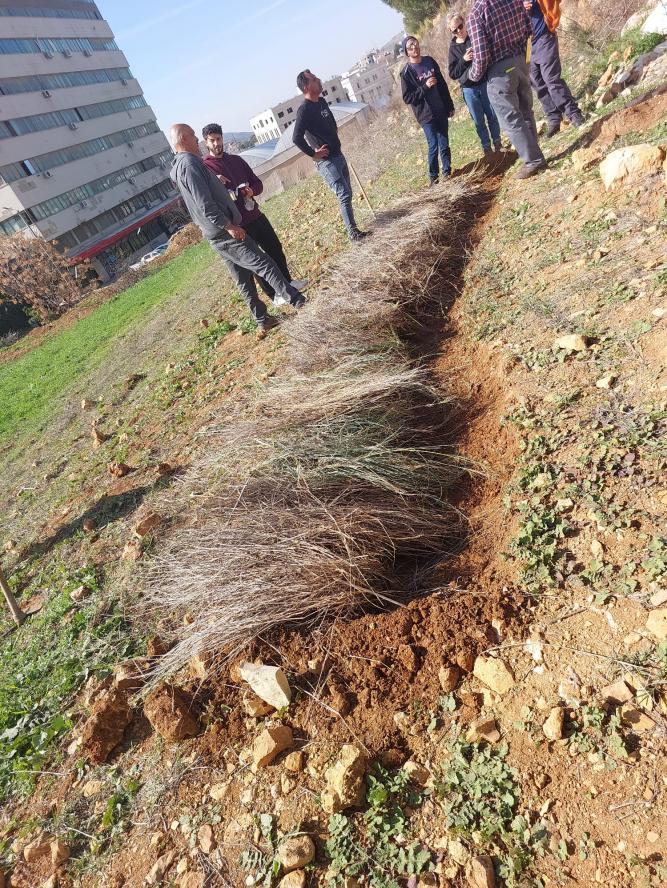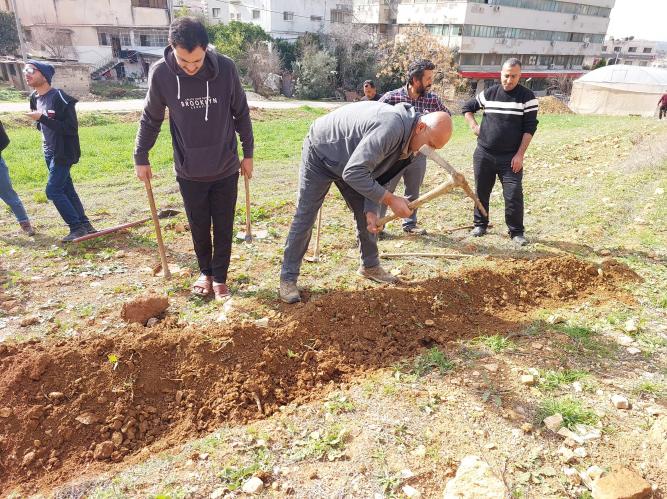Water Harvesting: Embracing Rainwater for Sustainable Agriculture
As part of its commitment to promoting food sovereignty and agricultural sustainability, Dalia Association has launched a training program titled "Water Harvesting: Embracing Rainwater in the Field." Held in the city of Salfit, this initiative is part of the "My Green Land" campaign, which seeks to empower farmers by teaching them how to maximize the benefits of rainwater to boost agricultural productivity. The program introduces participants to the concept of watersheds, their various types, and effective management practices while equipping them with both theoretical knowledge and practical skills for direct rainwater harvesting in the soil.
The training program comprises five comprehensive sessions designed to build participants' understanding and technical capabilities in managing rainwater for agriculture and development. The first session sets the foundation with a theoretical exploration of water issues, focusing on rainwater's pivotal role in agriculture and development. The second session transitions to practical fieldwork, where participants learn to analyze rainwater behavior and interpret field conditions. In the third session, hands-on training is provided on identifying contour lines, creating contour channels, constructing micro-dams, and designing crescent-shaped bunds. The fourth session deepens the practical application, introducing the concept of semi-sponge layers, their role in rainwater retention, and the steps required to construct them in the field. The final session revisits theory, guiding participants on how to calculate contour channel spacing, depth, and width, and how to determine the number of channels needed based on local rainfall patterns. The program concludes with a summary of key learnings, a review of training outcomes, and an emphasis on teamwork and collaboration to implement rainwater harvesting in natural environments.
Water is indispensable for agriculture and food production, and its scarcity renders farming impossible. In the Palestinian context, this challenge is exacerbated by the Israeli occupation's control over water resources, which limits Palestinians to accessing only 15% of their water. Additionally, nearly 70% of rainwater is lost to surface runoff, where water flows over land instead of being absorbed by the soil. This runoff not only reduces the availability of water for agriculture but also causes soil erosion, flooding, and severe environmental degradation, threatening the sustainability of the agricultural sector.
In response to these challenges, Dalia Association champions rainwater harvesting as an innovative and sustainable solution. This method not only protects soil and enhances agricultural productivity but also replenishes groundwater resources and springs. By adopting such practices, the initiative contributes to strengthening food sovereignty and safeguarding the environment for future generations.








